PROGRAM IN AUDIOLOGY AND COMMUNICATION SCIENCES

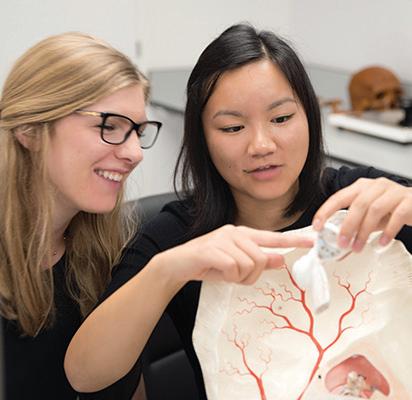











Thank you for taking the first step to learn more about WashU Medicine and its Program in Audiology and Communication Sciences (PACS)! We offer graduate programs in audiology, deaf education, and speech and hearing sciences that provide the unique combination of exceptional training and a close‑knit, supportive environment.
WashU has a storied history as one of the world’s top training programs, with faculty who are recognized leaders, state of the art facilities and equipment, and world‑ class research. Our graduate programs integrate academics, hands‑ on experiences, and research opportunities. We are committed to the success of every student, and maintaining a supportive, caring environment is central to our program culture.
Attending a close knit, private university also creates bonds with renowned faculty, well‑ connected alumni, and your fellow students. These connections help propel students into prestigious learning and career opportunities.
We’re thrilled you’ve taken the first step toward joining our community and we look forward to getting to know you!
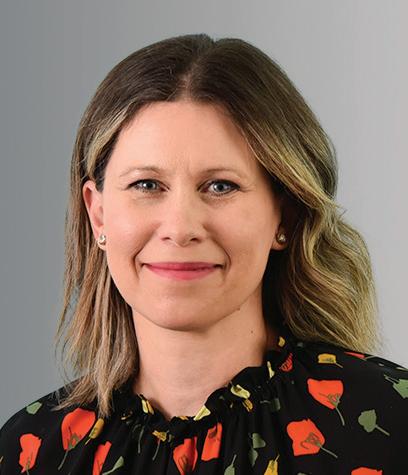
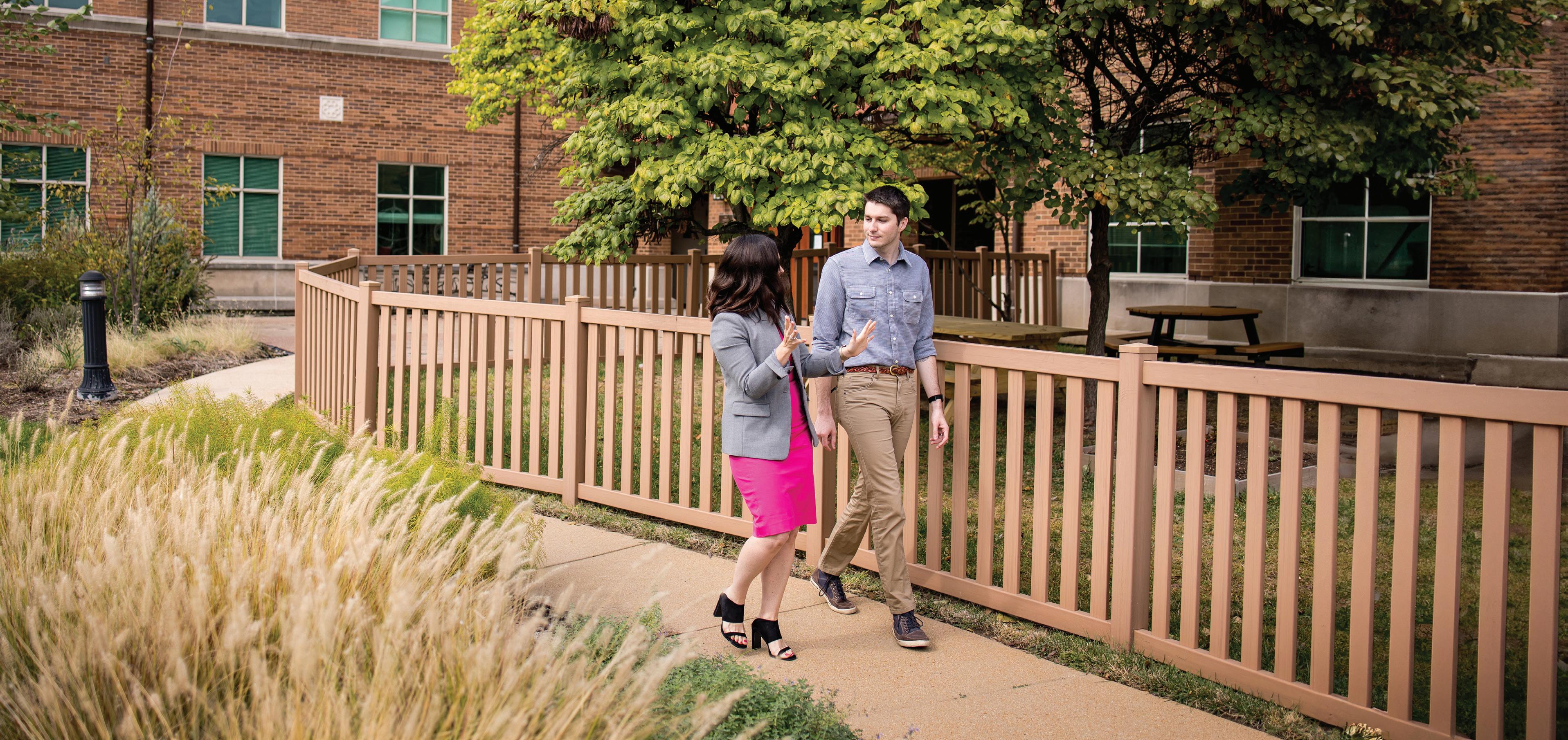
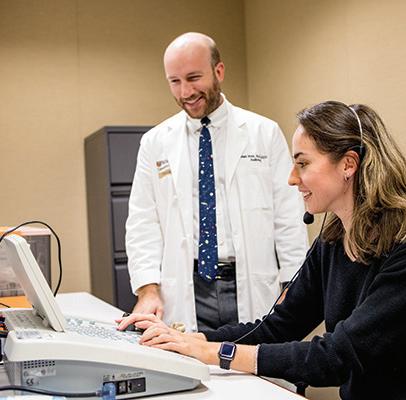
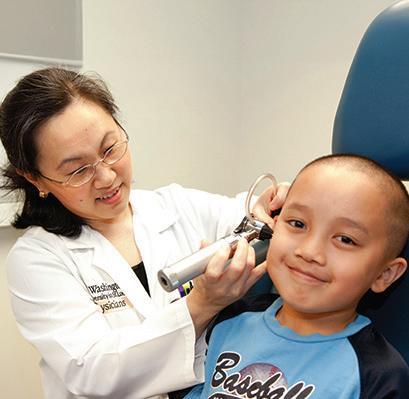
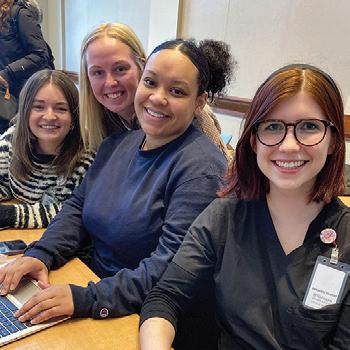
Being a part of the WashU family means you are a part of our extraordinary community of educators, researchers, clinicians, learners, and support staff. We are committed to the success and individual needs of every student, from the time you apply until you graduate, and beyond.
• Doctor of Audiology (AuD)
• Master of Science in Deaf Education (MSDE) Certification Track
• Master of Science in Deaf Education (MSDE) Degree Only Track
• PhD in Speech and Hearing Sciences
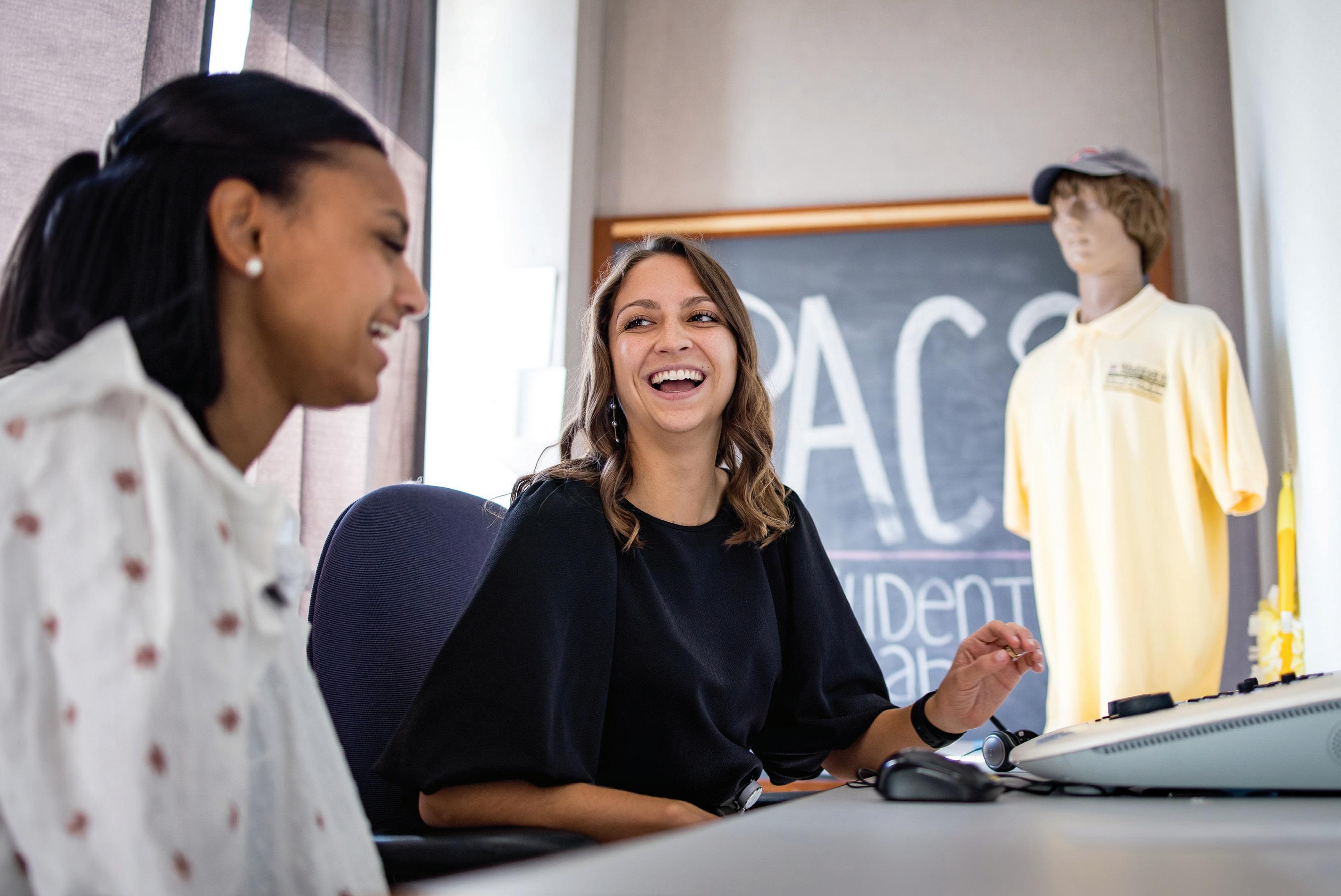
The Doctor of Audiology (AuD) program is a three ‑year course of study that emphasizes learning through hands‑ on experiences, coursework taught by experts in the field, and integration of current research. The program operates within the Department of Otolaryngology‑Head & Neck Surgery and School of Medicine, which offers students an exceptional interdisciplinary learning environment. From day one, students are immersed in clinical experiences, lab activities, weekly staffings, and 24/7 access to clinical learning labs devoted to student learning.
Through our network of over 250 affiliated sites, students have opportunities for both local and out of town clinical placements. These clinical activities are supported by classroom instruction and research opportunities, as well as elective, interprofessional opportunities in the School of Medicine, such as Grand Rounds, cochlear implant surgery observations, and learning experiences. For interested AuD students, specializations in pediatrics, geriatrics, research, and vestibular sciences are also available.
has been training audiologists since we established the first doctoral program in audiology in the country in 1947.
The three ‑year AuD curriculum integrates academics, clinical training, and research experiences, culminating in the completion of a Capstone Project and Clinical Externship in the third year. The program emphasizes hands on experiences across the lifespan and covers the scope of practice for the profession.
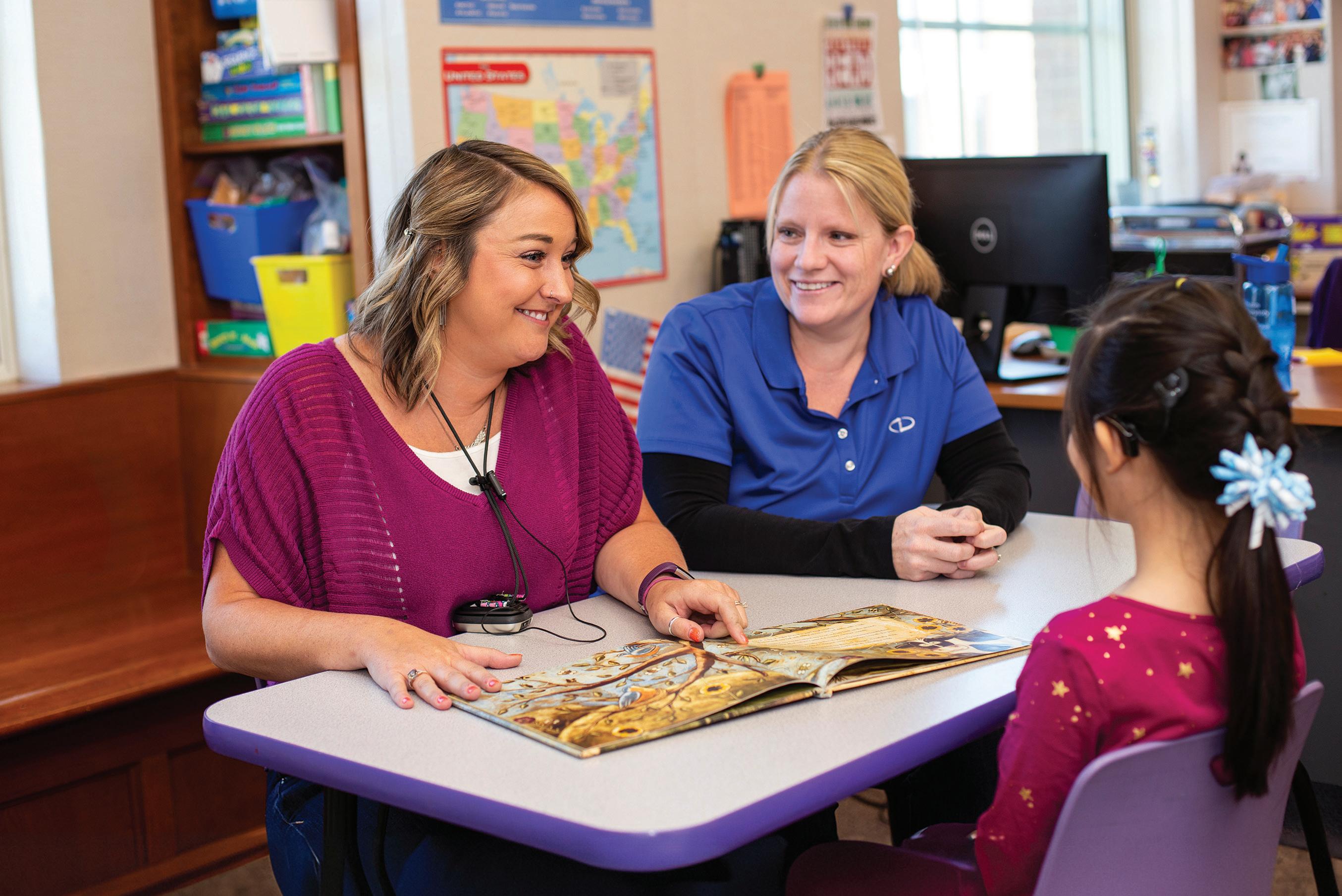
The Master of Science in Deaf Education (MSDE) prepares students as expert teachers of children who are deaf or hard of hearing from birth through grade 12. The early identification of hearing loss and advanced hearing technologies have increased the demand for early interventionists and teachers with experience in listening and spoken language, creating a national need in these areas.
The MSDE curricula combine coursework and immersive student teaching experiences.
Students in the MSDE program can select from two tracks.
The Certification Track is a four semester curriculum that prepares fully certified teachers of the deaf to serve children who are deaf and hard of hearing. Graduates are eligible for initial teacher certification recommendation (Missouri, Deaf/Hearing Impaired, Birth to Grade 12) and for national certification by the Council on Education of the Deaf (CED).
The Degree Only Track is a two semester intensive curriculum that provides advanced education and experience in deaf education. This track
is designed for individuals with experience and certification in deaf education or related professionals seeking to expand their training.
The MSDE program is internationally‑recognized for excellence and we have been training teachers of the deaf since the program was established in 1914.
The MSDE curriculum integrates coursework and student teaching to fully prepare students to work with infants and children who are deaf or hard of hearing and their families.
Students learn and practice together to develop the knowledge and skills to provide collaborative, evidence based services.
Fall Semester Spring Semester
Anatomy and Physiology
Behavior Management
Clinical Audiology
Early Literacy Development
Language Instruction
Amplification
Systems and Aural Rehabilitation
Curriculum I
Early Intervention
Literacy Lab
Literacy Theory and Instruction
Speech Instruction
Foundational Courses*
Sign Language
Language Development
Early Intervention II Evaluation Techniques
Curriculum II
Pre Service Teacher Preparation
Counseling Parents
Independent Study
Psychosocial and Educational
Foundations of Deafness
Degree-Only Track
Fall Semester Spring Semester
Early Intervention II
Clinical Audiology
Evaluation Techniques
Language Instruction
Literacy Theory and Instruction
Counseling Parents
Speech Instruction
Independent Study
*May be waived if completed prior to enrollment
Education and Psychology of the Exceptional Child
Child and Adolescent Psychology
Student Teaching: Practicum in Deaf Education
Student Teaching: Practicum in Deaf Education
Electives*
Anatomy and Physiology
Behavior Management
Sign Language
Sign Language III
Language Development
Early Literacy Development
Curriculum II
Pre Service Teacher Preparation
Student Teaching: Practicum in Deaf Education
*Select 2–3 elective courses per semester
Electives*
Sign Language II
Literacy Lab
Curriculum
Psychosocial and Educational
Foundations of Deafness
Early Intervention
Student Teaching: Practicum in Deaf Education
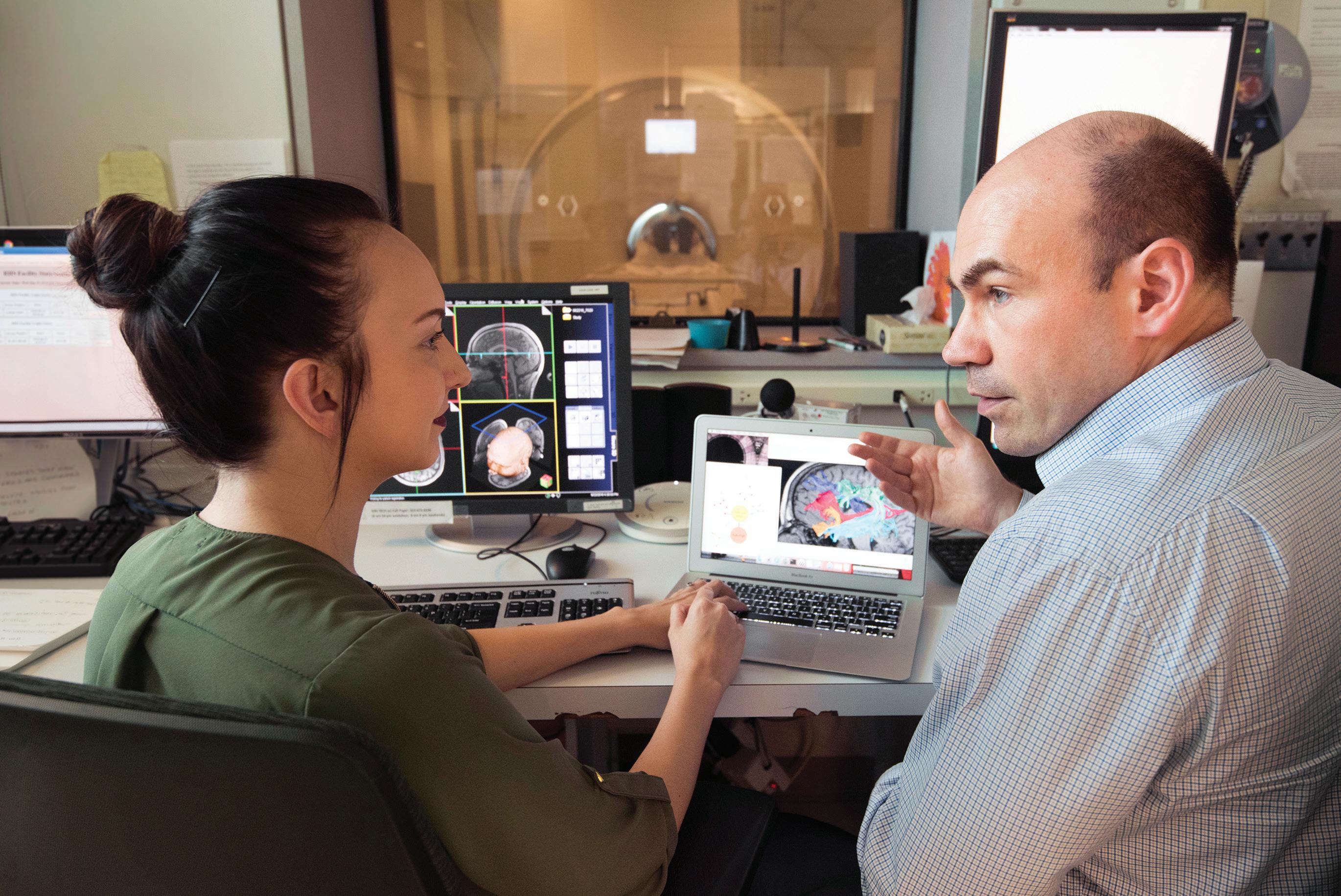
The PhD in Speech and Hearing Sciences prepares students for careers in research, academia, and industry. The curriculum is individually tailored to meet each student’s academic and professional goals. Under the mentorship of experienced research faculty, students complete academic coursework, interdisciplinary research projects, and mentored teaching experiences. Faculty are recognized leaders in their fields who direct successful externally‑funded research programs, with the Department of Otolaryngology among the largest and most heavily funded research groups in the country, consistently ranking among the top in NIH funding.
Students who have dual interests in clinical audiology and research can pursue the AuD and PhD in a combined program. Enrolled AuD students are eligible to apply for PhD admission in the fall semester of their second year, with enrollment beginning in the third year of study. The remaining AuD coursework is completed in parallel with PhD coursework, with an individualized study plan developed for each participating student.
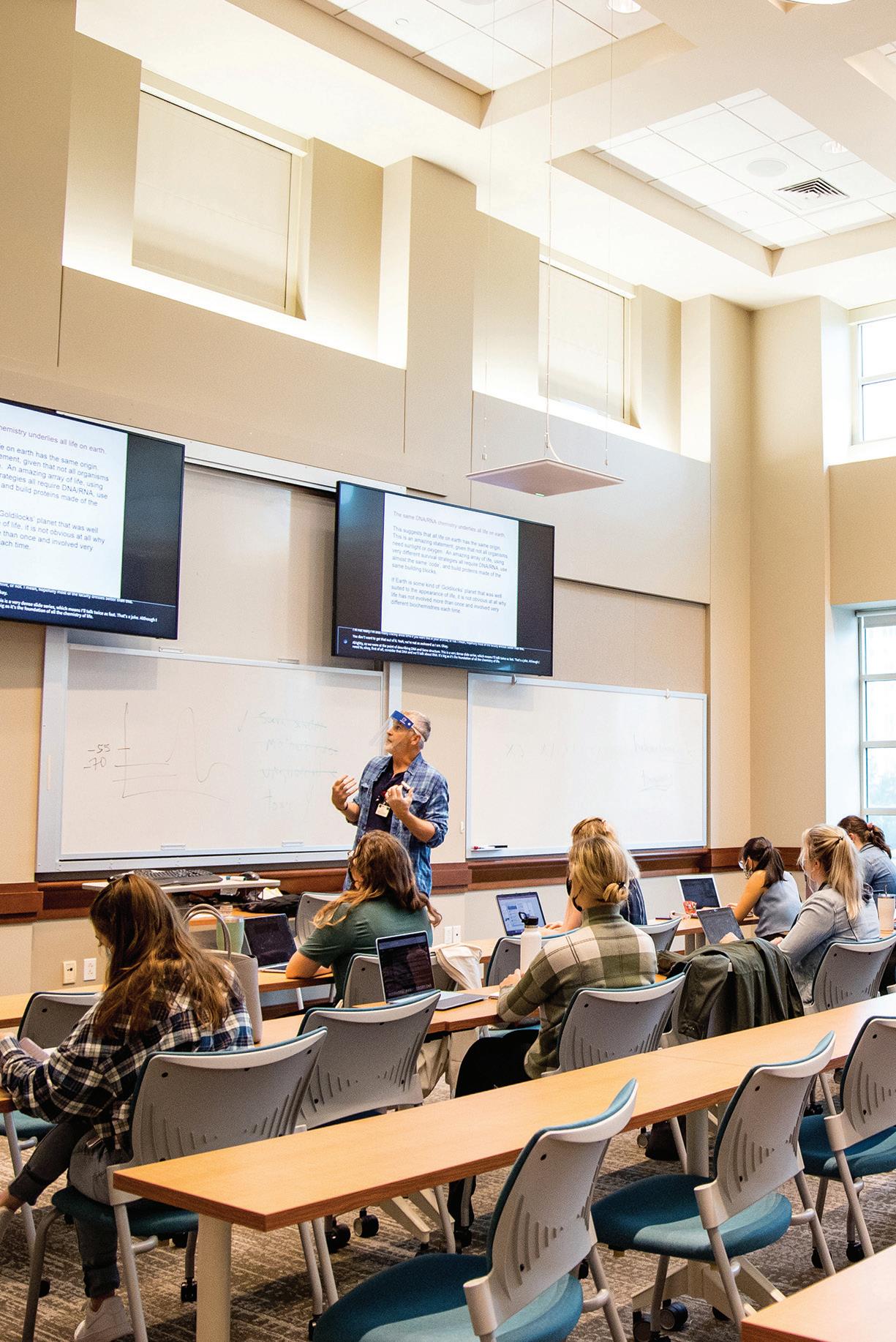
On your journey from applicant to student and beyond, our faculty and staff support you every step of the way. Applicants are connected with a dedicated admissions representative who assists them through matriculation. This support continues after enrollment, with each student matched with a faculty member, who provides advising and mentorship throughout the program.
We have a large, diverse faculty body that includes internationally‑ recognized leaders in education, research, and clinical practice. Our interdisciplinary faculty includes clinical audiologists, research scientists, teachers of the deaf, speech language pathologists, and otolaryngologists, and courses are taught by leading experts in the subject matter.
In all that we do, we follow five guiding principles – collegiality, advocacy, respect, excellence, and support. The results speak for themselves. A hallmark of our program is the close ‑knit, collegial atmosphere, with small student cohorts that turn to each other for friendship, collaboration, and inspiration.
This warm, supportive environment also extends to your interactions with faculty and staff, who are there to guide you through challenges and cheer your successes. Our culture favors teamwork over hierarchy: even though our professors are at the top of their field, you’ll be treated as a colleague rather than a novice. Expect plenty of one on one time with faculty, who take a personal interest in students’ goals.
Year after year, our students discover why our immersive learning environment is a worthy investment. In your time at WashU, you’ll build an extensive personal and professional network to sustain you throughout your career.
One particular focus area is recruiting, training and supporting students who are deaf or hard of hearing. Students who have firsthand experience with hearing loss bring unique and essential perspectives to our learning community and the profession as whole.
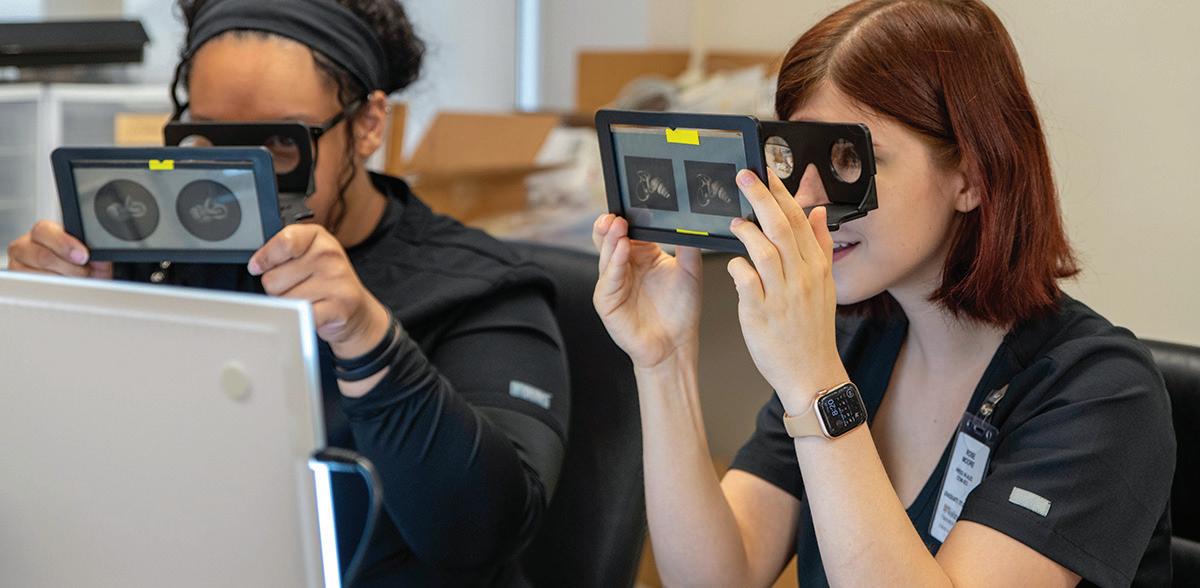

Daily life on WashU’s beautiful 186 ‑acre Medical Campus and its surrounding areas offer students ample opportunities for maintaining a healthy work‑life balance. On campus partners include Barnes‑Jewish Hospital, St. Louis Children’s Hospital, Central Institute for the Deaf, and Siteman Cancer Center.
Located on the eastern edge of Forest Park, one of the country’s largest and most beautiful urban parks, there are abundant recreational and cultural opportunities just steps away. Students often live nearby in the Central West End or The Grove neighborhoods, or in the on campus apartments known as The Core. These housing options offer students the benefit of proximity to campus, dining, entertainment, fitness, and public transportation. With a wide variety of graduate student organizations, including an active Student Academy of Audiology chapter, and an abundance of extracurricular opportunities that fit your interests, you belong at WashU.
St. Louis is a wonderful city for graduate students to live and train, with a lower than average cost of living, vibrant neighborhoods, and plenty of
things to do. St. Louis offers all the cultural opportunities of a large city with the trademark friendliness of the Midwest. We encourage you to learn more about all St. Louis has to offer at explorestlouis.com.
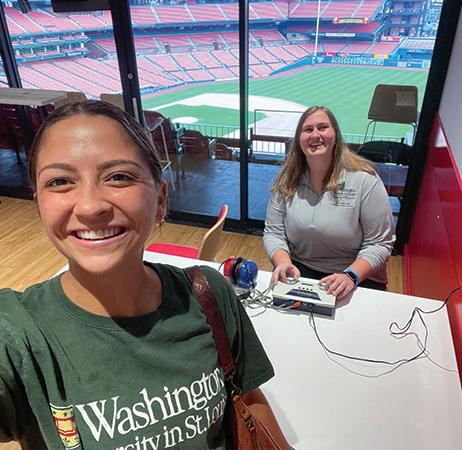
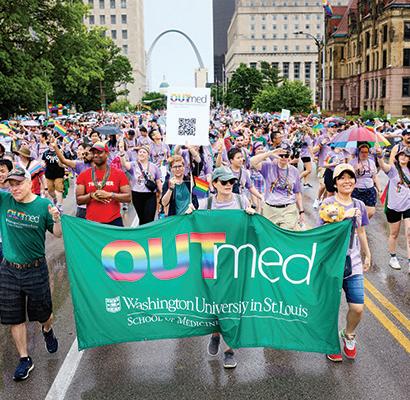
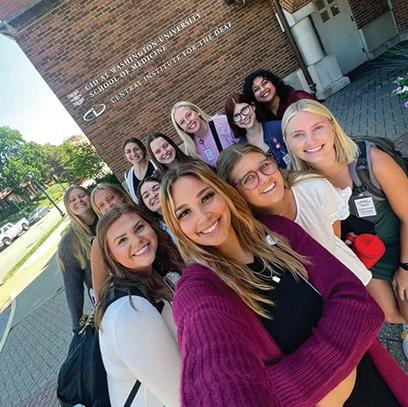
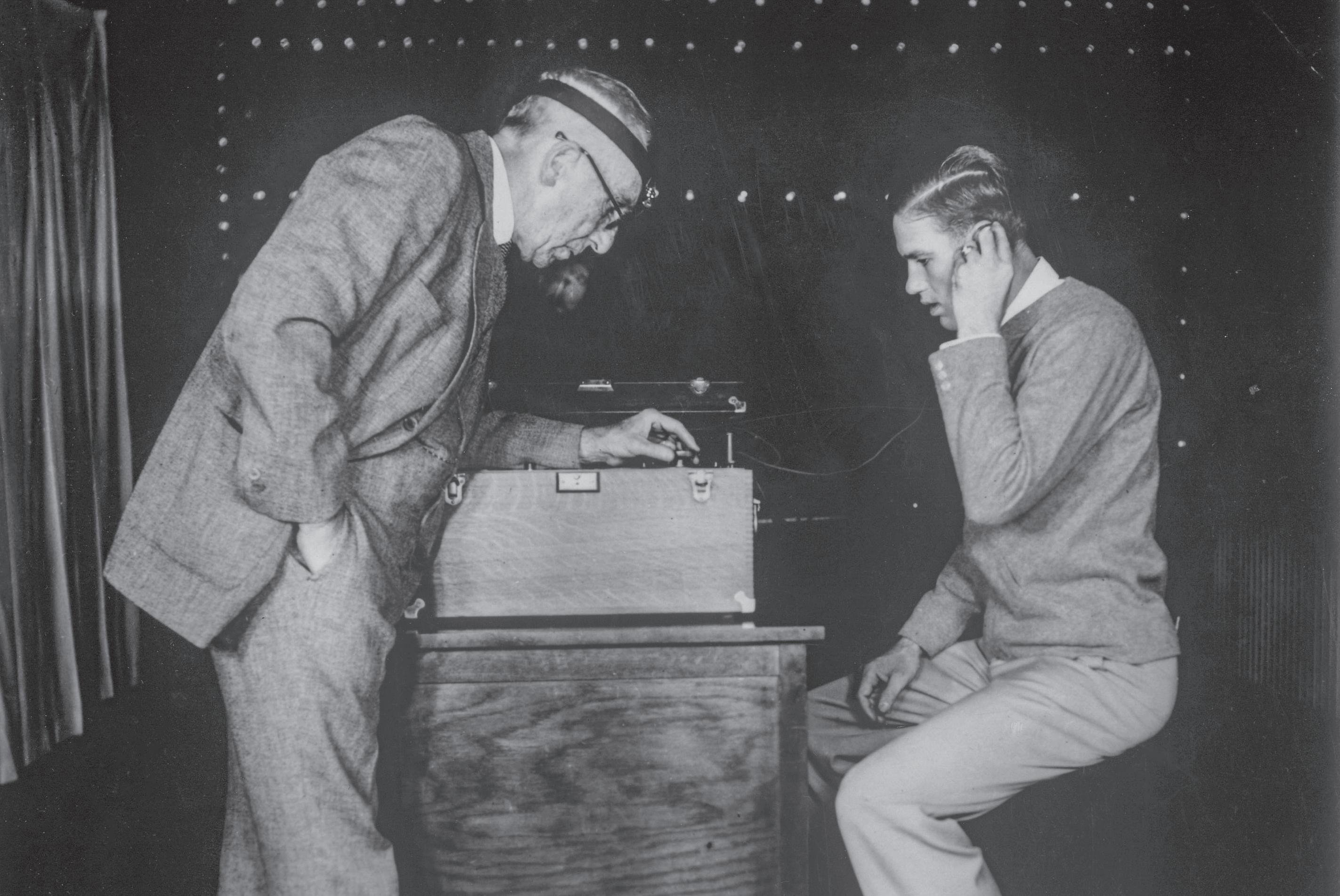
St. Louis has an important place and rich history for audiology deaf education, with many of the founders and leaders of these fields having studied, researched, and practiced here. These roots date back to 1914, when Central Institute for the Deaf (CID) was founded as a school for the deaf and as a training program for teachers of the deaf. WashU and CID joined forces in 1931 to formalize this training as the country’s first university degrees in deaf education.
During World War II, research conducted here on hearing loss in military personnel laid the foundation for the field of audiology, with the doctoral audiology program established at WashU in 1947. CID and WashU also pioneered audiology testing, developed the digital hearing aid, conducted
seminal research on hearing, and opened the country’s first hearing aid clinic. Throughout this history, training future professionals and leaders in these fields has been central to our mission, a tradition that continues to this day.
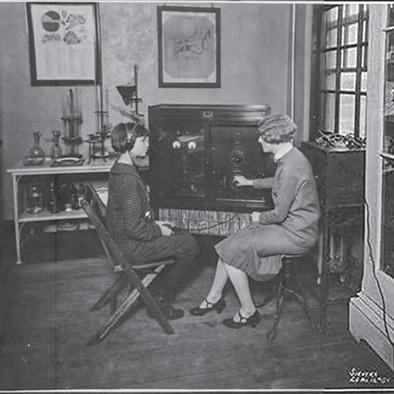
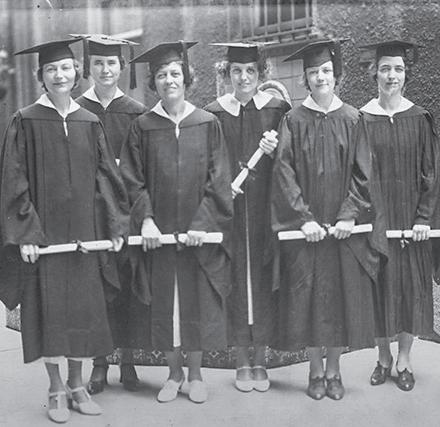
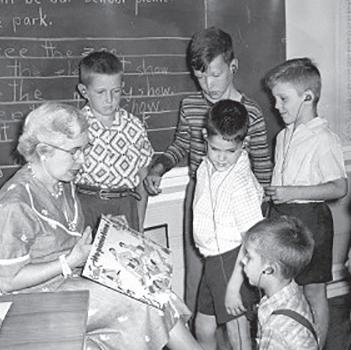
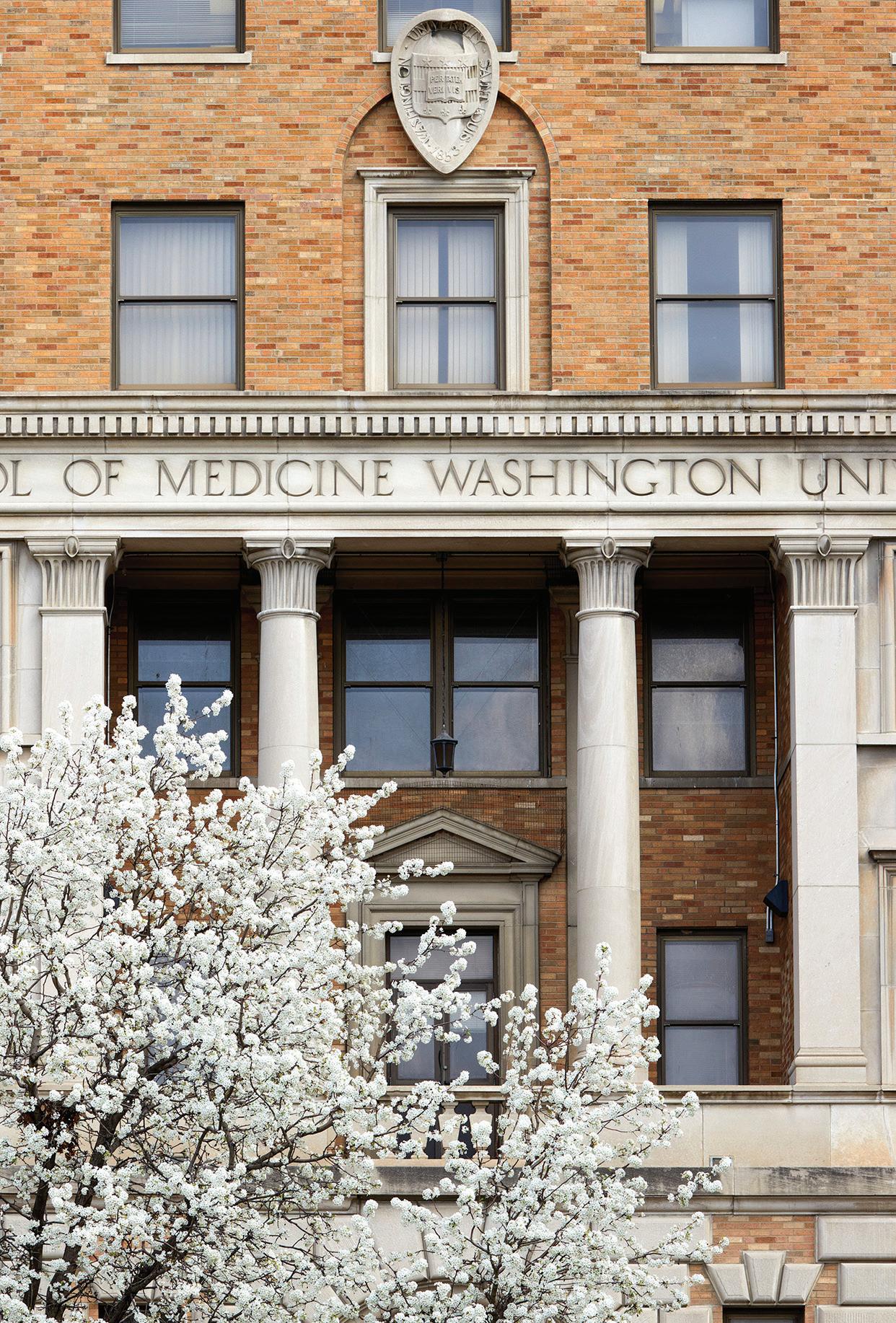
We understand that funding is an important consideration when making decisions about graduate school, and we offer a wide variety of opportunities for every student who enrolls.
As a WashU student, you will receive outstanding financial support. Each year, we award over $1.5 million in funding directly to students in our AuD, MSDE, and PhD programs.
Tuition rates for AuD and MSDE students are frozen at the time of matriculation and will not increase during their enrollment. PhD student tuition is generally fully remitted.
Admitted students are automatically considered for merit scholarships based on a full review of their application. These generally reduce the annual tuition by 35%–100%. No separate application is required to be considered and merit scholarships are guaranteed for all years of study.
Additional scholarship opportunities are available on a year to year basis.
These scholarships provide PACS students with supplemental funding and all eligible students are automatically considered.
AuD students are eligible to serve as a Graduate Student Assistant (GSA) after their first year of study. Eligible students are invited to apply during the first year.
Federal grants from the U.S. Department of Education provides full tuition scholarships for qualified students. For MSDE students, these grants cover up to 100% of tuition costs for all years of study. For AuD students admitted to the Pediatric Audiology Specialization, these grants cover 100% of tuition costs for one year of study. Please visit our website for complete information on funding and service obligation details.
Federal work/study and other work opportunities provide part time employment for qualified students. Jobs are offered by PACS and other on campus partners each year.
Most students qualify for student loans to help cover tuition and living expenses. Our Office of Student Financial Planning works closely with students on loan options.
More opportunities and information
Our graduate programs each admit one class every fall semester. Applications open annually on SEPTEMBER 1
FEBRUARY 1 DECEMBER 15 (EARLY DECISION)
FEBRUARY 1 (PRIORITY DECISION)
JUNE 1 (ROLLING OFFERS) JANUARY 1
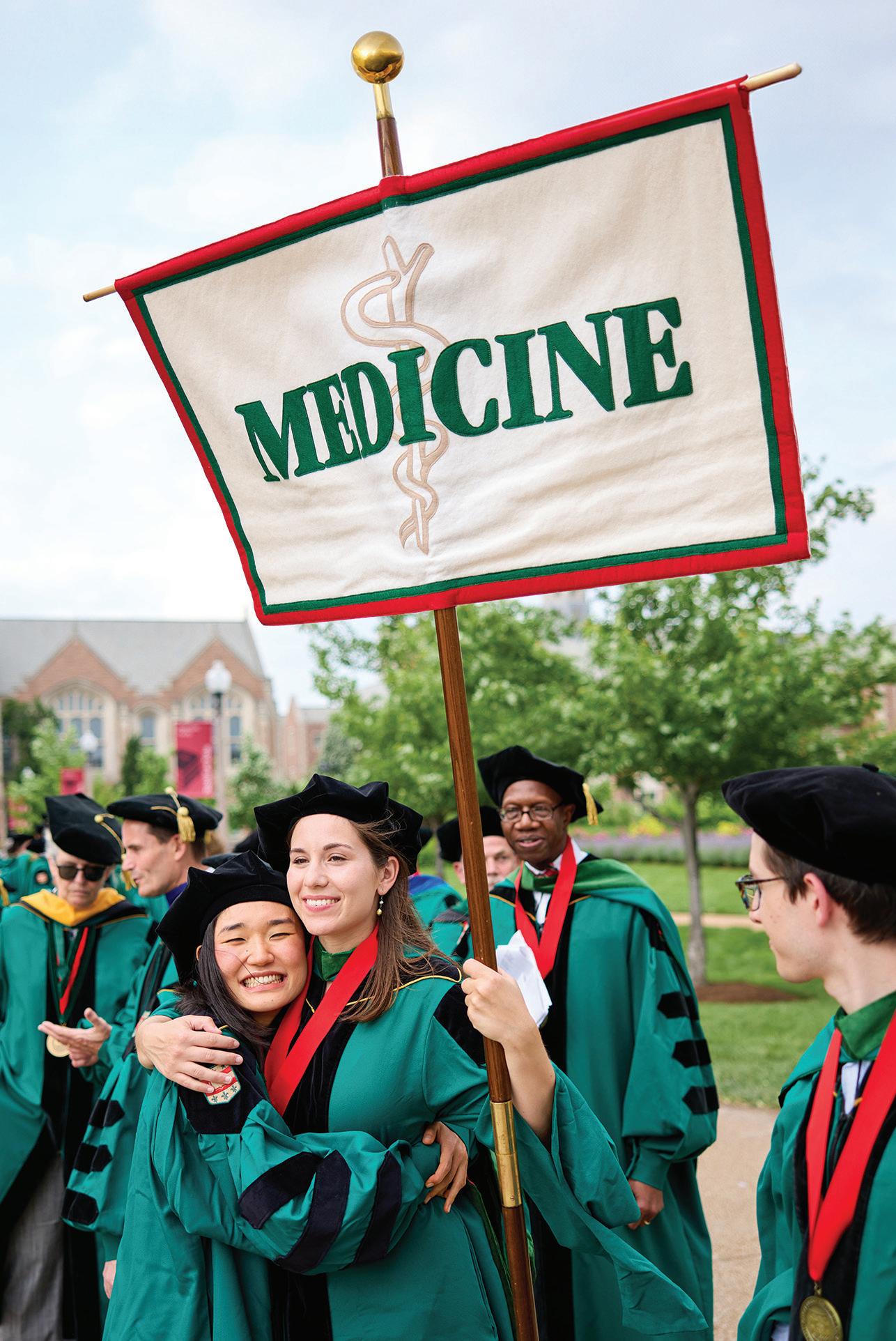
We’re glad you’re ready to take the next step toward joining the WashU community!
Required application materials:
• Online application form
• Personal statement
• Resume or CV
• Brief asynchronous video interview
• Uploaded unofficial transcripts from all college/university coursework
• Three letters of recommendation
• Non refundable application fee of $25
For a list of required application materials, program prerequisites, additional requirements for international students, to submit your application, or more information
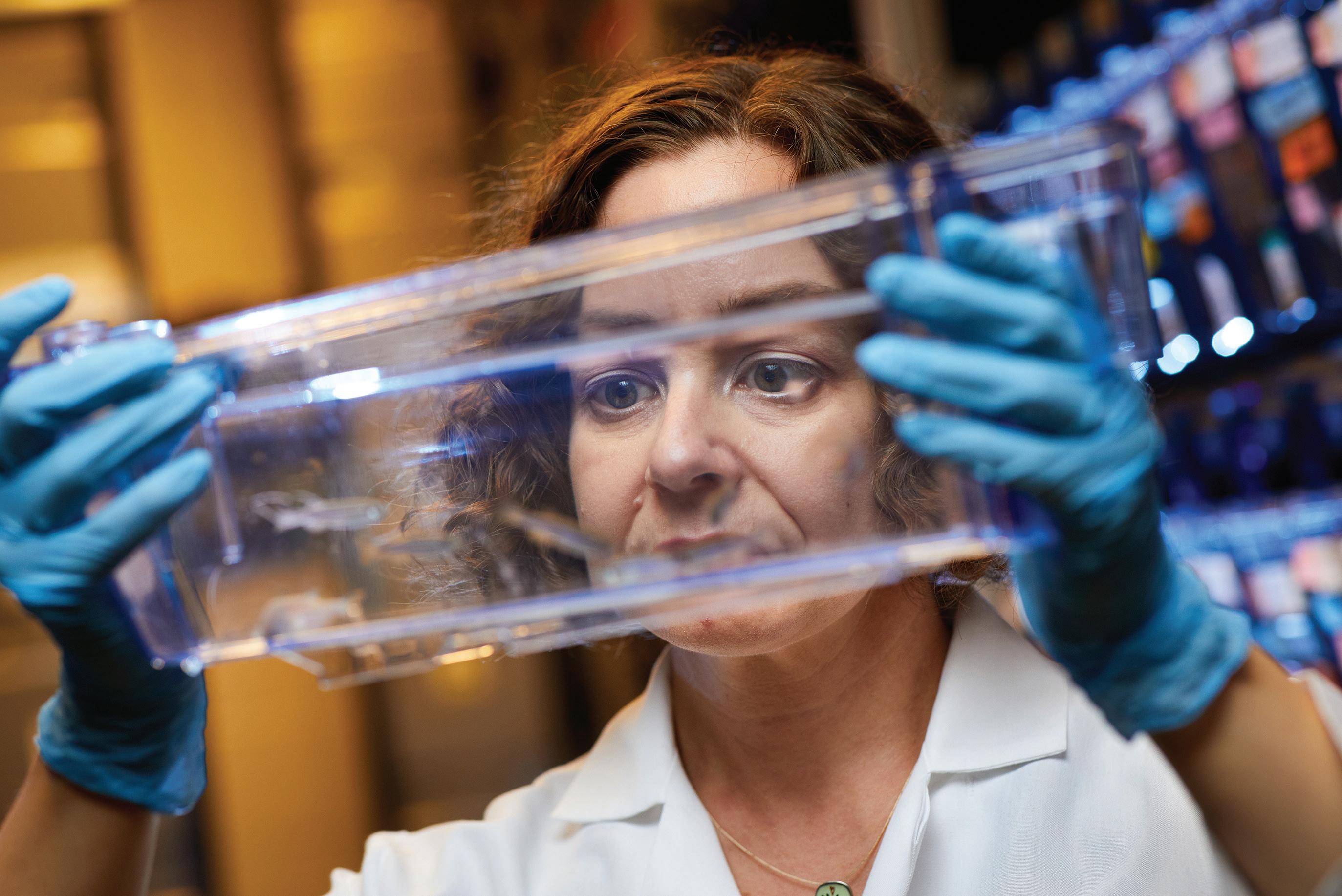
The Doctor of Audiology (AuD) education program in audiology (residential) at Washington University School of Medicine in St. Louis is accredited by the Council on Academic Accreditation (CAA) in Audiology and Speech Language Pathology of the American Speech Language Hearing Association (ASHA), 2200 Research Blvd. #310, Rockville, MD 20850, (800) 498 2071 or (301) 296 5700. The CAA of ASHA is recognized by the U.S. Department of Education as an accrediting agency for clinical audiology training programs leading to the AuD degree. Most state boards of licensure require that applicants graduate from a U.S. school accredited by the CAA as a condition for licensure. In addition, some state boards of licensure require that applicants hold the Certificate of Clinical Competence (CCC) in Audiology to obtain certification (for which Washington University graduates are eligible) and/or to take and pass the PRAXIS Audiology examination. For a state by state listing of requirements, please visit ASHA.ORG/ADVOCACY/STATE. PACS has determined that, as a result of CAA accreditation, its AuD program curriculum meets the educational requirements to sit for the PRAXIS Audiology examination, to pursue the CCC A, and to pursue licensure in all states and territories of the United States and Washington, DC. (Note: American Samoa, the Republic of the Marshall Islands, and the Republic of Palau do not currently regulate the profession of audiology.)
The Washington University School of Medicine’s MSDE (Certification Track) program is accredited by the Missouri Department of Elementary and Secondary Education (DESE) and the Council on Education of the Deaf (CED). The MSDE program is recognized by DESE as an approved teacher training program, leading to initial teacher certification in the area of Deaf/ Hard of Hearing (Birth–Grade 12). DESE also requires applicants take and pass the Praxis Examination Special Education: Education of the Deaf and Hard of Hearing Students as a condition for licensure in this area. Select endorsements may also be added upon taking and passing other content examinations. PACS has determined that its MSDE (Certification Track) program curriculum meets the educational requirements to sit for the
required state examination and to pursue initial teacher certification in the area of Deaf/Hard of Hearing (Birth–Grade 12) in the State of Missouri. Graduates are also eligible for initial or provisional certification in all U.S. states and territories except American Samoa.
Washington University encourages and gives full consideration to all applicants for admission, financial aid, and employment. The university does not discriminate in access to, or treatment or employment in, its programs and activities on the basis of race, color, age, religion, sex, sexual orientation, gender identity or expression, national origin, veteran status, disability or genetic information. Inquiries about compliance should be addressed to the university’s Vice Chancellor for Human Resources, Washington University, Campus Box 1184, One Brookings Drive, St. Louis, MO 63130.
Incoming students in the School of Medicine must undergo criminal background checks and drug screening before matriculation because of requirements of the Joint Commission on Accreditation of Health Organizations (JCAHO). These confidential procedures are required of all health care workers, students, and volunteers who participate in patient related health care activities at the hospitals and health care facilities with which Washington University School of Medicine is affiliated. In order to matriculate, a student who has accepted admission must consent to criminal background checks, which must be completed successfully before he or she can matriculate in the School of Medicine. Consent forms will be distributed to applicants who are offered positions in the incoming class. Similarly, at the time of orientation, all incoming pre matriculant students must submit to screening for the following substances: THC cannabis, cocaine, opiates, amphetamines, and PCP phencyclidine. A confirmed positive test will preclude enrollment into the School of Medicine. All costs for U.S. background checks and drug screenings are included in the stated tuition and fees.
Washington University
School of Medicine
MSC 8042 26 2000
660 S. Euclid Ave.
St. Louis, MO 63110
Phone: (314) 747 0104
Fax: (314) 747 0105
Email: pacs@wustl.edu